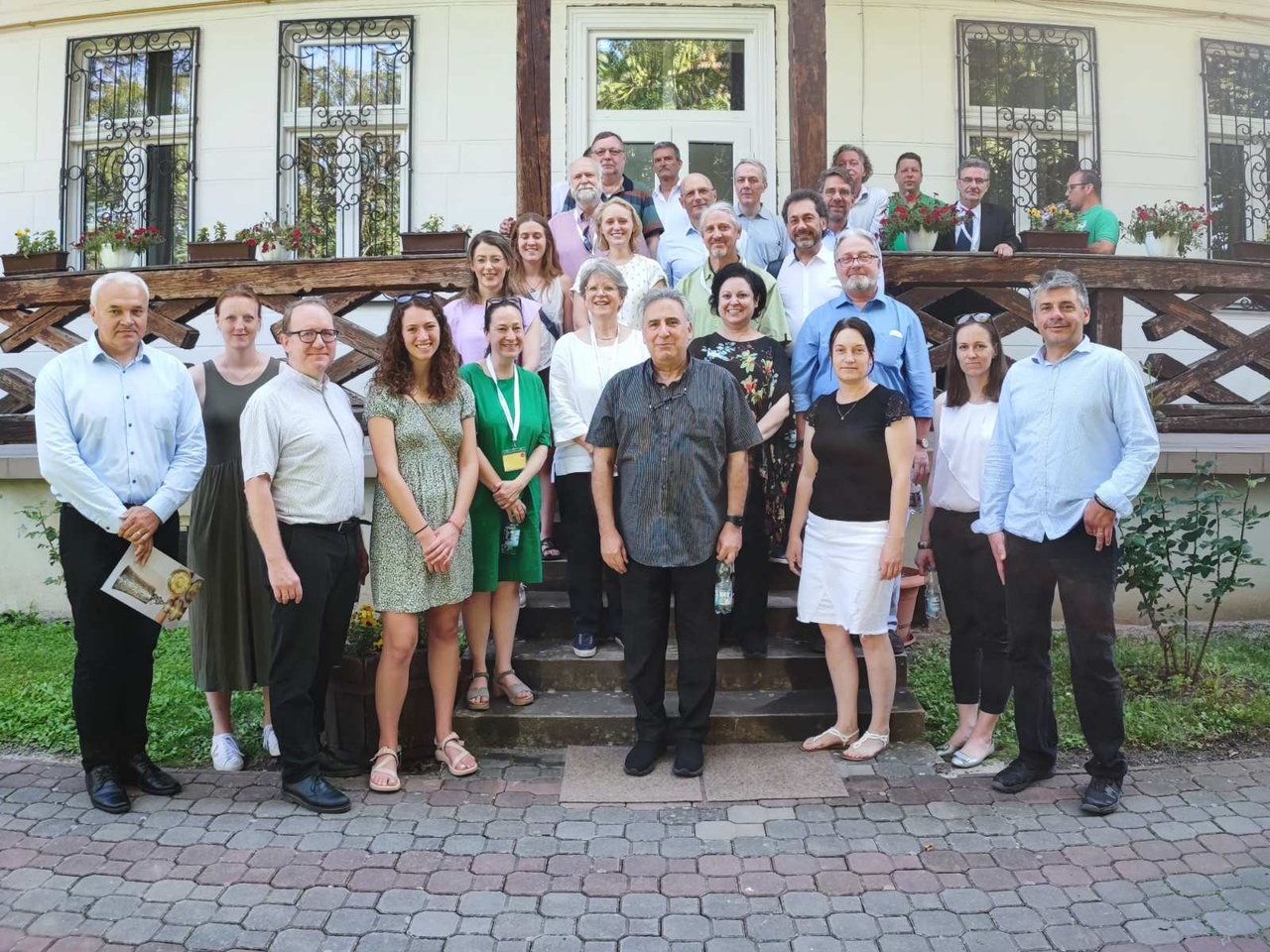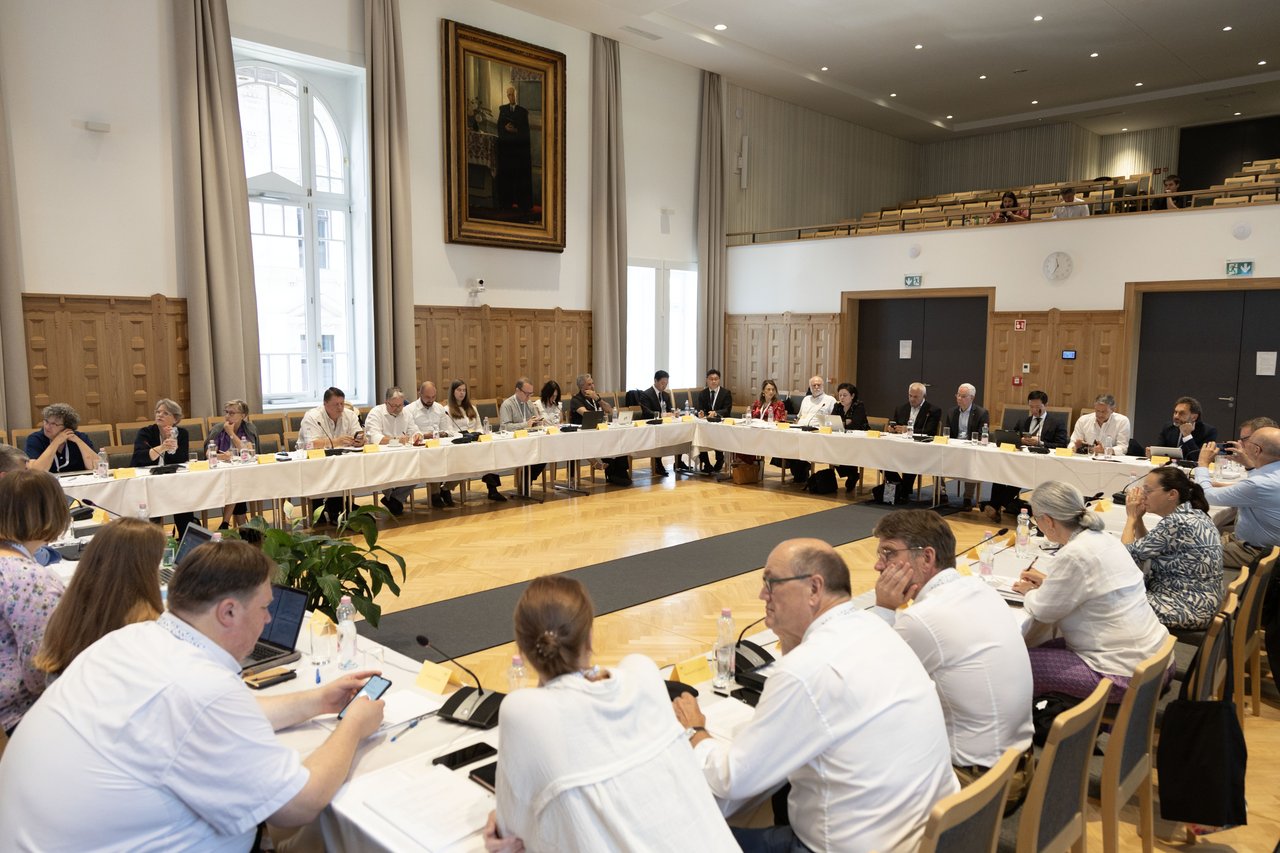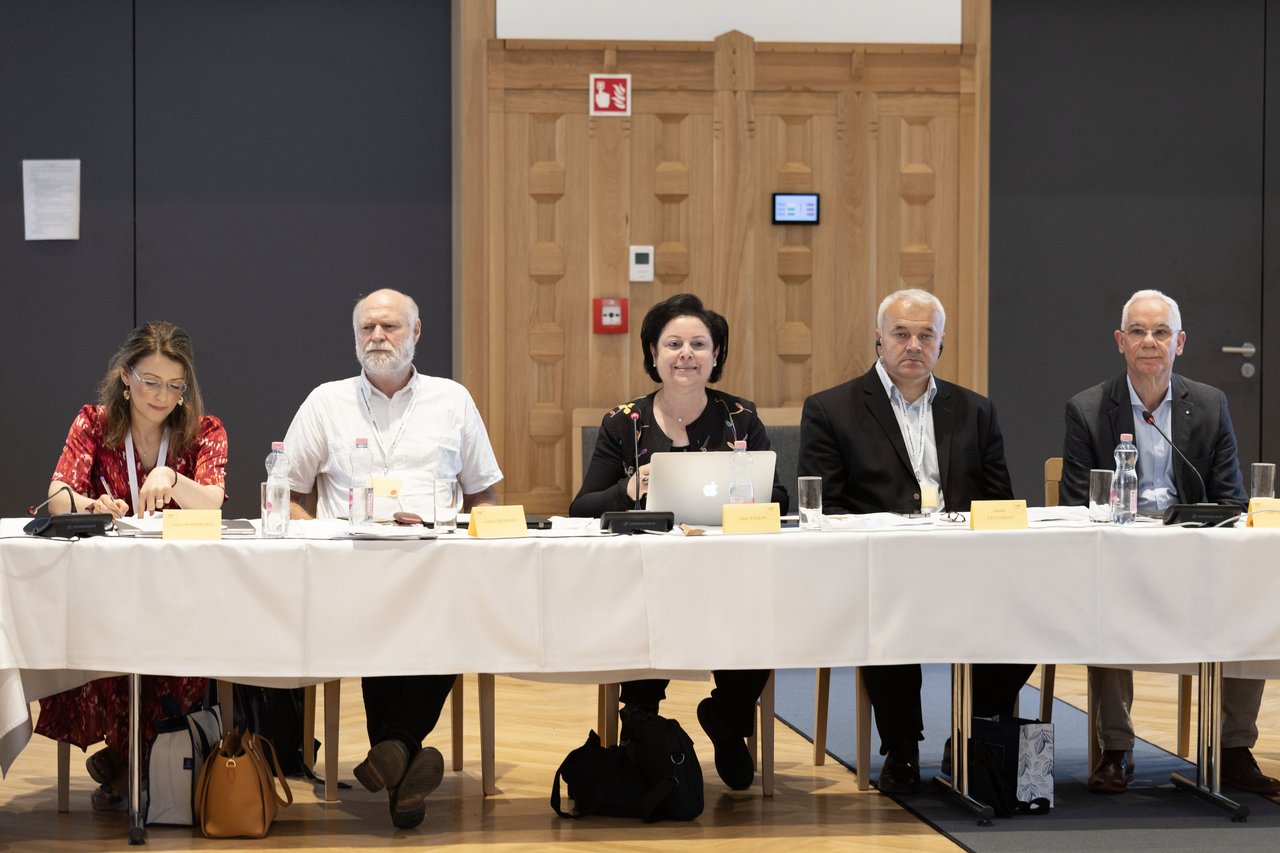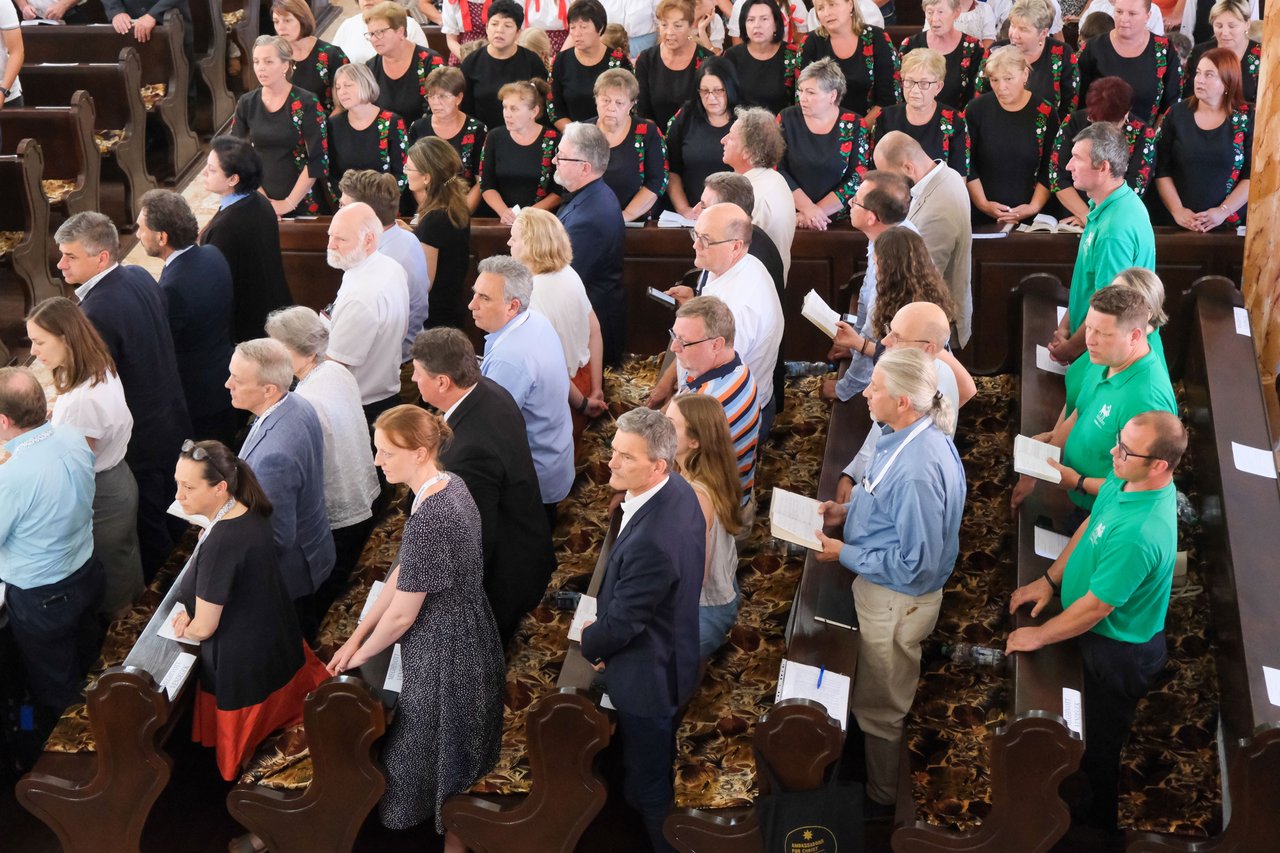The Reformed Church in Hungary, in cooperation with the Reformed Church in Transcarpathia (Ukraine), recently hosted the “Ukraine Future Conference” from the 14th-17th of July. To reaffirm their continuing solidarity, partner churches and organizations worldwide gathered in Budapest to listen to and discuss interpretations of just peace and reconciliation.

The consultation invited those trusted partners who have supported the Ukrainian people financially and spiritually throughout the war to come together in their mutual commitment to providing aid in securing the well-being of the Ukrainian people. “We are together – sisters and brothers – from East and West, from the crisis zones, neighboring countries - and together we have a clear position: we don’t know how to bring an end to the war, but we know what we personally and as churches must do: HELP,” were the words of Bishop Zoltán Balog in his opening to the partners.
Indeed, the roots of the consultation grasped questions of how churches may aid and uplift communities in times of war and crisis. The consultation’s format included three different panels presenting perspectives and initiatives on peace, justice, and reconciliation from Europe, the Middle East and South Korea, and various churches in Ukraine. The second portion of the consultation included worshiping with the community in Transcarpathia, Ukraine, and sharing words of prayer with the ministers there.
The consultation also acted as an opportunity for the Hungarian Reformed Church Aid to demonstrate to partners firsthand the impact their support and solidarity had on the organization’s capacity to respond to the crisis. The HRCA’s Refugee Ministry met refugees at border crossings and railway stations, providing meals, hygiene kits, and pastoral counseling. Beyond the first response, the HRCA set up information hubs for those wishing to know more about Hungary or Budapest, organized community events for families, the elderly, and children, and supported parents as they tried to find employment. Following the consultation, the partners traveled to Transcarpathia, Ukraine. Here, the partners had an opportunity to visit a local social kitchen in Kisdobrony that the HRCA helped organize.
In the first panel, representatives from European organizations presented ongoing relief efforts, including supporting the operations of shelters and social kitchens, providing durable foods, and more. Additionally, partners gained insight into the regional consultations and initiatives European church organizations have prepared in their continuing support for their partners and the people of Ukraine. The European organizations are earnest in their commitment to aiding those most vulnerable during this crisis, both spiritually and financially.
The Conference of European Churches (CEC) presented its Pathways to Peace initiative and its commitment to facilitating peace-building efforts by providing opportunities for open ecumenical exchange. This includes bringing churches together within Ukraine and throughout Europe. Within this initiative, CEC has plans to cultivate a network of church leaders, academics, and intellectuals and, in discussing the developments of the situation in Ukraine, create a framework for the role of churches in the peace process.

The second panel gathered perspectives from the Middle East and South Korea, offering the opportunity to learn what it means to live as a church during war, the difference between knowing and understanding scripture in times of struggle, and the contrast between the restoration of society and the reconciliation between peoples. As part of this panel, panelists dove to the heart of the work toward reconciliation, viewing one another as brother or sister in humanity and embracing a response of faith, hope, and compassion.
The last panel presentations focused specifically on the Ukrainian context, uplifting those voices highly relevant to the ongoing humanitarian crisis. Specifically, panelists from various churches in Ukraine discussed the necessary elements of a lasting dialogue on restoration and reconciliation. The emphasis remained on individual agency and that reconciliation must come from within and cannot be imposed from the outside. Panelists also discussed the obstacles we face in peace-building efforts as churches and individuals. As individuals, it is difficult to keep hope when our values are tested, and we find ourselves rocked by insecurities on either side. As churches, it is difficult to minister to communities in crisis and uplift a vision of hope and healing. Nevertheless, in the face of such distress, the Reformed Church in Transcarpathia denoted this year as the year of hope inspired by the scripture in Job 14:7-9: “At least there is hope for a tree: If it is cut down, it will sprout again, and its new shoots will not fail. Its roots may grow old in the ground, and its stump dies in the soil, yet at the scent of water, it will bud and put forth shoots like a plant.”

Partners also had the opportunity to worship with the Reformed Church in Transcarpathia at the Nagydobrony church and learn about their ministry in response to the outbreak of the war. Here, partners met with the pastors of the Reformed Church in Transcarpathia, and representatives from the Middle East shared pastoral messages from their own experiences in Syria and Lebanon and their gratefulness to the Transcarpathian community for their support following the earthquake in Northern Syria. Following this, at the local reformed secondary school, those gathered received a presentation from the headmistress, who explained the school’s role in the church’s aid response, including the dormitories which acted to house individuals fleeing the violence.
To conclude the visit with the Reformed Church in Transcarpathia, partners were shown a rehabilitation center for the elderly operated by the Diaconal Coordination Office of the Reformed Church in Transcarpathia. The center offers a higher degree of care to elderly individuals than they might receive at home while also housing a center for pregnant women and mothers with small children who are facing crisis situations. When the war broke out, the center offered its spaces as a shelter for internally displaced persons and continues to house those fleeing the violence. Partners learned that operating schools, homes for the elderly, hospitals, or other institutions of service comes with obstacles.

The consultation was a forum for honest discourse where partners listened, learned, and supported one another. Those attending appreciated the opportunity to connect spiritually with the Transcarpathia community, worshiping with them in celebration of a local holiday. In its entirety, the Ukraine Future Conference built upon the ongoing work of partner churches, church organizations, and the churches of Ukraine to build upon these relationships and allow for an ongoing precedent of open dialogue on just peace. Partners remain committed to supporting and standing in solidarity with the people of Ukraine.
Participants came from churches in Belgium, Croatia, Germany, Hungary, Italy, Lebanon, Ireland, Poland, Romania, Scotland, Serbia, Slovakia, South Korea, Switzerland, Syria, the United States, and Ukraine. The church organizations represented were the World Communion of Reformed Churches, the Communion of Protestant Churches in Europe, and the Conference of European Churches.
Ukraine Future Conference
Partner churches and organizations from across the globe gathered in Budapest between the 14-15th July to attend the Ukraine Future Conference, initiated by the Reformed Church in Hungary in cooperation with the Reformed Church in Transcarpathia (Ukraine)